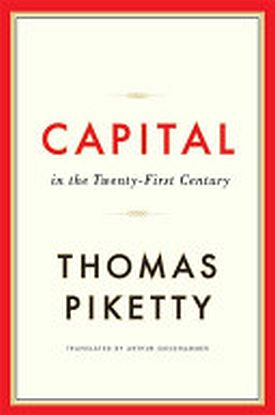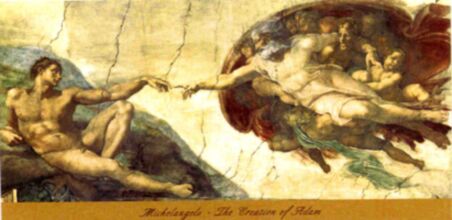Up From the Ruling Class
From The American SpectatorHilton Kramer
The death of Hilton Kramer in March, two days after his eighty-fourth birthday, may seem to put a period to that vital, confident era of post-war modernism that corresponded to America’s emergence as the dominant power — or “hegemon” to use the currently favored jargon — of the free world. In fact it was the era of the free world itself, an idea which has gone out of fashion since it became polite to treat the rival powers of Russia and China as if they were free themselves and not just the rump of the same old brutal oligarchies trading under a different name. While the free world was still a going concern, however, Hilton was one of its greatest champions against the “intellectuals” of the left who had made it their business to obscure and denigrate all that made it free, including the modernist tradition in the arts. Of that tradition he was also the most prominent champion of his time, especially in defending it against those whom he regarded as its illegitimate offspring among the post-modernists.
At any rate, with his passing, more than just his own unmistakable critical voice has been stilled. Writing in Philanthropy Daily William Schambra pointed out that The New Criterion, the magazine Kramer co-founded with the late Samuel Lipman in 1982 (and to which I am a long-time contributor), also belongs to a different era — an era in which conservative foundations took so expansive a view of the conservative project that they understood it to comprehend the promotion of conservative tastes as well as anti-communism and economic liberty.
It is therefore difficult to imagine (Mr Schambra writes) where a Hilton Kramer and Sam Lipman would turn today, to fund a project as remote as is The New Criterion from the well-defined and carefully honed mission statements of our largest conservative donors. In fact, the conservative movement in general might be living off — and failing to replenish — the cultural capital still with us in institutions like The New Criterion, initiated during and left over from the era of broad-based intellectual activism undertaken by [Michael] Joyce, [Richard] Larry, [James] Piereson, and [Leslie] Lenkowsky, when they ran the most significant foundations.
A lot of the problem, as Mr Schambra recognizes, is anxiety on the part of these foundations and their staffs about “donor intent” — by which is meant the right of philanthropies founded by conservatives to remain conservative. It is easy to cite examples of the foundational version of the tendency described by O’Sullivan’s First Law, namely, that “all organizations that are not actually right-wing will over time become left-wing.” Since the Ford, Rockefeller, Carnegie, MacArthur and other big foundations have all followed this well-worn path leftwards, those which retain some tether to the principles of their right-wing capitalist founders are understandably concerned to keep their missions narrowly defined and carefully monitored, preferably by means of quantifiable “metrics,” in order to avoid a similar fate. For the same reason, I think, they also recognize that it is wise to stay well away from culture and the arts which, as I pointed out in these pages last year (see “Preening to the Converted” in The American Spectator of April, 2011), have become left-wing almost by definition. But of course this is precisely why it is so important to support the few who, following the example of Hilton Kramer, continue to toil in the cultural fields even though they are of a conservative persuasion and must endure even worse things than the smug condescension that characterized so many of the posthumous tributes to that great man.
Another reason why conservatives tend to see culture as alien territory is what is called, invariably with pejorative intent, élitism. As an apologist for what used to be called “high culture,” Hilton was a proud élitist, but most conservatives nowadays associate a social or a cultural élite with the political one so memorably described by Angelo M. Codevilla in our July/August issue just two years ago as “America’s Ruling Class.” Part of Mr Codevilla’s point, however, was that America’s supposed meritocracy was really no such thing, that instead of the blindly graded examinations throughout the system that make France a genuine meritocracy (whatever else it may be), the social profiling by which we mostly choose the undergraduate population at our élite universities produces instead a privileged class whose title to privilege depends less on genuine talent than on holding the right opinions and adopting the right social attitudes. “Our ruling class,” he wrote, “recruits and renews itself not through meritocracy but rather by taking into itself people whose most prominent feature is their commitment to fit in.” And “the more it has dumbed itself down, the more it has defined itself by the presumption of intellectual superiority.”
By chance, I have lately had occasion to read The Rise of the Meritocracy (1958) by Michael Young, later Lord Young of Dartington, the British sociologist who first coined the term. It is not a theoretical defense of meritocracy but a hard-hitting satire against the whole concept, written in the assumed persona of a naive technocrat congratulating the system which had produced himself for its perspicacity in so doing. “What a splendid result it is!” this innocent burbles. “No longer is it just the brilliant individual who shines forth; the world beholds for the first time the spectacle of a brilliant class, the five per cent of the nation who know what five per cent means.” In his old age Lord Young was forever being annoyed by the unironic use of “meritocracy” by politicians and others who simply assumed that it must denote a desirable thing. Shortly before he died, he published an article in The Guardian taking to task Tony Blair, then the Prime Minister, for this lazy habit of mind
It is good sense to appoint individual people to jobs on their merit. It is the opposite when those who are judged to have merit of a particular kind harden into a new social class without room in it for others. Ability of a conventional kind, which used to be distributed between the classes more or less at random, has become much more highly concentrated by the engine of education. A social revolution has been accomplished by harnessing schools and universities to the task of sieving people according to education’s narrow band of values. . . The new class has the means at hand, and largely under its control, by which it reproduces itself.
From the left, Lord Young anticipated Angelo Codevilla’s argument from the right nearly a decade later, and both find an echo in the new book by Charles Murray, Coming Apart (see the review by William Tucker in our April issue), which does so much to document the ways in which class distinctions in white America have hardened almost into castes. Ironically, Mr Murray points to the relevance in this context of “merit” in its older sense — not, that is, as mere academic talent but as the moral virtue whose absence is associated with economic and social decline.
His argument has resonated with ordinary Americans of all classes who have become dimly aware that incurring a ruinous load of debt in one’s 20s in order to obtain a credential of limited relevance to one’s subsequent career merely because it also promises access to the élite is as outrageous an imposition on talent and ambition as its promise is likely to prove illusory. Rick Santorum was appealing to the same sense of vague and unfocused discontent when, rather clumsily, he accused President Obama of snobbery for holding out the plainly absurd prospect of “college” — and, therefore, élite status — for everybody. It’s not that our President is a snob, though he may be that too; it’s that he is a fantasist and a con-man promoting privilege for an influential group of his own supporters on the bogus grounds that it will eventually become privilege for everybody.
Of course, Mr Obama owes his own election in large part to all the media hyperbole about his braininess, which would have been of much less effect without the unspoken equation of intelligence with merit characteristic of the meritocracy. My favorite political cartoon of the recently concluded primary season was one by Clay Bennett which appeared in The Chattanooga Times Free Press and was reprinted in The Washington Post. It showed a man in a baseball cap who has just put a Rick Perry sign in the front yard of his suburban bungalow. With the hammer still in his hand, he says to his neighbor, who is leaning across the fence between their two houses,”Electing smart people isn’t working.” It borders on the heretical, nowadays, to suggest that electing smart people even needs to “work” — is not, in fact, self-justificatory. That’s because smart people like other rent seekers derive their entitlement to power not from what they do but from what they are. That’s also characteristic of the “intellectuals” against whom Hilton Kramer did battle. He, at least, always understood that intelligence was justly valued for its own sake and not as an entitlement to power and status.
Discover more from James Bowman
Subscribe to get the latest posts to your email.







